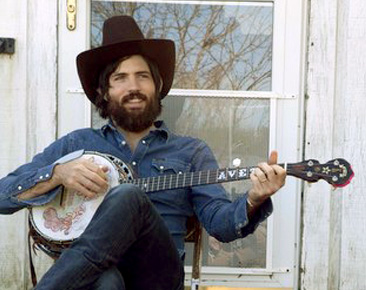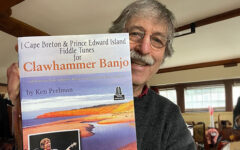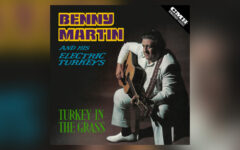
 Deering Banjos has published a lengthy interview with Scott Avett, of the notorious Avett Brothers.
Deering Banjos has published a lengthy interview with Scott Avett, of the notorious Avett Brothers.
I say notorious because discussions about the band can become quite heated in bluegrass circles, especially where the “that’s not bluegrass!” crowd is concerned. From the start, Scott has played the banjo with his brother Seth on guitar, and in recent years The Avett Brothers have found mainstream success for their hybrid sound, which owes more to their rock and folk backgrounds than a grounding in bluegrass would have provided.
Much of the interview is given over to his relationship with Deering, but he also discusses the traditions of bluegrass and banjo music, and how he sees himself fitting in.
What is your take on traditional methods of playing the banjo?
I think that banjo has the need for traditions to be upheld and carry on. The problem for me with that is my attention doesn’t stick to it very well, it is not in my make-up to do that. I kind of equate it to the difference of being a musician versus an artist, or a musician and a creator. I’m so thankful for musicians because without them I don’t think I would be operating like I do.
I support people upholding those traditions of playing in a certain style and perfecting those and being obsessive about them. If that’s their bug, I think it’s great, it really is. I am certainly impressed by it and like to hear, and always get excited when I see an old timer or bluegrass. I’m just not made up for it. I drift a little more than that, unfortunately or fortunately. Thank God for those traditions I’ve learned a lot from them.
How do you think the older or heritage image of the banjo is changing now with current bands picking it up and making new ways of playing?
I think that it’s much needed. Who knows maybe it’s been happening all the time, communication is so hyper and so great now that we’re allowed to be exposed to all of it. I can’t say enough good things about how great it is that there is so much more awareness of the instrument. It is kind of a rock star instrument these days. It’s in a lot of bands, banjo and fiddle and acoustic guitar are just massively popular right now. I mean everywhere. And it’s much more than in the 80s and the 90s, much more. When we would go to Merlefest there was just this corner of the world where the banjo will always be, always was and is still loved. In that place it’s such a predominant and beautiful piece of the music, well I don’t know, it is totally different now, it’s expanded and crosses over easily into rock and roll for sure and easily into commercial country music as well. Along with a couple other instruments that are roots and acoustically based, I think that it has been over the last 5 years to the present one of the powerful instruments out there.
As it was growing in me I’m sure it was growing in many other people too. I think it was needed, that tangible organic sound that acoustic music offers was needed. Sustainability, self-sustainability, self-sufficiency, things like that are very relevant these days, they are thought about quite a bit in all realms of life, especially here in America. More in other countries but in America I think people are really thinking about that a lot. This music reflects that feeling, it helps sort of comfort and guide that feeling. Back in the day I imagine in the depression in the 30’s and 40’s the banjo was a common instrument. There is no reason it should have gone away. It is probably more strange that it went away than it is back.
What do you think about the fact that you are becoming a major influence for other people picking up the banjo?
I think that is a big responsibility and an obligation that I have to people that may be influenced or inspired by me, and I take that as the greatest complement that could possibly be given. I am so honored by it, it’s a dream come true that someone would say that to me. As I know how that is, I still am that way and know what it is like to be inspired and feel something that someone else is doing and that’s the point in doing it, so I welcome the obligation. I welcome the responsibility as something that is priceless and very valuable, and like I said is quite a dream come true.
You can read the full interview on the Deering site.







